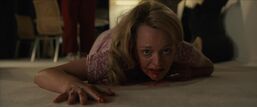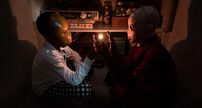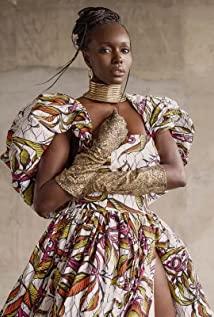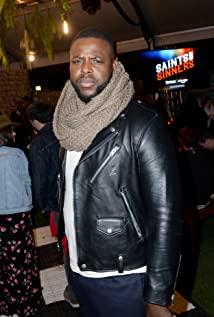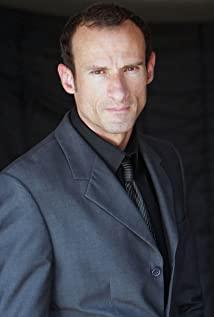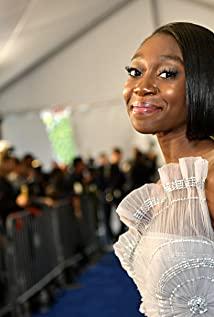Therefore thus says the LORD: I will bring disaster upon them, from which they cannot escape. They will cry to me, but I will not listen. —Jeremiah 11:11, Chinese Union Version
Under the impact of the wave of diversification, the influence of African-American filmmakers has grown the most in recent years in Hollywood, which is dominated by white people. In this context, Jordan Peele's 2017 writing/directing debut "Get Out" has become an important milestone in the horror/thriller genre, not only breaking box office records, but also matching the later "Black Panther" It has become a very interesting case: the deep thinking of the African-American group about itself and American society for many years, after obtaining sufficient creative autonomy, it is exported in a unique mode - both with sufficient professional Sex, and can re-examine the great era that the United States has experienced and is experiencing from a special perspective.
And Jordan Peele's second feature film, "Us," proved that the surprises of "Get Out" weren't just flukes. Despite playing a trick on the title (our US = US US), unlike the common follow-up movies that play the "political correctness" card, the awareness and means shown by Jordan Peele in these two movies are actually Not dissimilar to what he showed in his early years in the comedy series Key and Peele. After "Get Out", although "Us" is still led by black actors, he did not continue to make a fuss about black subjects (of course, this is not impossible), but by turning to a wider topic - different societies The separation of classes, the separation of national will and individual identity—brings different interpretation directions. In the process, by delivering the most unexpected content, you're instead giving your viewers what they (don't know they) want most.
And Jordan Peele, who has taken over the host of the new version of "Onmyoji", is also a typical movie fan himself. Even if these political and social metaphors are abandoned, he can still bring rewards to the audience in a new perspective. "Us" has many shadows of "Onmyoji" and B-horror movies, and also sees the influence of Stephen King and Steven Spielberg's early family horror movies through Amblin.
As the first film of 2019 to take aim at the American zeitgeist, "Us" offers audiences the unsettling parallels between today's America and the Reagan era more than 30 years ago, and the McCarthy era even earlier. But it is also because of this that "We", which can be roughly regarded as a mixture of "annihilation" and "Tianwaihuahua", is more threshold than "Escape from the Dead" in terms of viewing.
This is not a bad thing either.
In traditional horror/thriller movies, the key events often have certain inherent logic and causality. But "Us" is more difficult to classify than "Escape from the Dead". One of the main reasons is that the setting of "Double Body" adopts an allegorical treatment similar to "Edward Scissorhands". This is also an important choice made by the film to try to visualize "identity anxiety". One of the tests of "Us" is how the audience understands all of these designs that don't fit neatly and don't quite make sense.
In contrast, the film's attention to detail. Undoubtedly, "Us", like "Get Out," will give viewers plenty of time to munch on its hidden message: a plethora of biblical quotations (two Jeremiah at key moments) Book 11:11, The Analogy of Heaven and Hell), a homage and parody of Jaws and The Shining (especially the latter). And the House of Horrors billboards went from being a stereotype of Native Americans in the 1980s to a politically correct Mage Merlin, apparently to hide the appearance of racism, and the horrific truth hidden within it.
And "Us" isn't just a love letter to a horror movie either. Unlike the traditional white protagonist, the film brings a more unique and even more realistic America in ethos. The status and identity of the male host who provided the main point of laughter at home is very interesting. Even the family itself, which does not look like a family, is a satire of past white movies. At the same time, the same actors, while playing the normal-to-boring protagonist, moved on to another villain in extreme pain and distortion. This is arguably one of the most dramatic contrasts in recent Hollywood movies.
The final piece of the puzzle of "Us" comes from an excellent production team. Jordan Peele and photographer Mike Gioulakis (Split, Under the Silver Lake, Mr. Glass) create disturbing images in mundane spaces, using light, shadow and angles to create vicious and oppressive views. movie experience. On top of that, Jordan Peele was able to maximize static power and use jump scare to a minimum, with a slow, unstoppable rhythm that fidgets. The heavy use of dissonance in the sound department also sets the stage for a nerve-wracking plot.
Last summer's MV "This is America" can be said to be similar to Jordan Peele's film language: the seemingly nonsensical and incoherent plot, the use of a lot of subtext, one of the purposes is to cause greater range of discussions and reflections.
Jordan Peele won't be the next Kubrick, Shyamalan, Hitchcock or even Spielberg. Jordan Peele's films are an organic fusion of comedy and horror elements with social context. His visual style is bright and playful, and the real fear comes not from plasma or monsters, but from ourselves. He provides the audience with material to think about, thereby allowing the audience to feel and dig out the dark side of American society.
The horror/thriller type in the usual sense realizes the sensory stimulation of the audience through direct visual stimulation and indirect psychological suggestion. But in the eyes of Jordan Peele, like "Get Out" and "Us", layers of irrational fear can be induced in the audience's heart. This is also very rare in the currently booming horror genre.
And with the upcoming reboot of "Onmyoji," hopefully Jordan Peele will also bring more surprises to the horror revival.
View more about Us reviews



